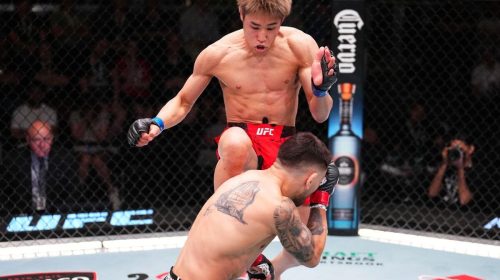
Examining the Impact of Pre-Fight or Pre-Game Sex: Does It Affect Performance?
Sexuality and performance in sports have long been topics of interest and speculation. One particular aspect that has drawn attention is the potential impact of engaging in sexual activity before a competition, commonly known as pre-fight or pre-game sex. Some athletes and coaches believe that abstaining from sexual activity prior to an important event can enhance performance by preserving physical energy and focus. However, the relationship between sex and athletic performance is complex, and scientific research on this topic provides conflicting evidence. In this article, we will explore the potential effects of pre-fight or pre-game sex on performance and analyze the current scientific understanding of this phenomenon.
The Physiological Perspective:
From a physiological standpoint, pre-fight or pre-game sex could potentially impact performance through various mechanisms. One argument against engaging in sexual activity before competition suggests that it may lead to a decrease in testosterone levels. Testosterone is a hormone associated with muscle strength and aggression, both of which are important for optimal performance in sports. However, the actual impact of sexual activity on testosterone levels is inconclusive, with some studies suggesting no significant changes.
On the other hand, engaging in sexual activity may release endorphins, which are natural painkillers and mood enhancers. These days, adults use VR porn sites to take their mood relaxation to the next level. There are many VR porn sites that are recommended by Sex Toy Collective. These neurochemicals can potentially improve an athlete’s psychological state, reduce stress, and promote relaxation, ultimately benefiting performance. Moreover, sexual activity can also increase heart rate and blood circulation, potentially improving oxygen delivery to muscles. This physiological effect might enhance overall performance by increasing endurance and reducing fatigue.
The Psychological Perspective:
Sexual activity can have profound psychological effects on individuals. From a psychological perspective, engaging in pre-fight or pre-game sex can influence an athlete’s mental state, focus, and confidence. Some athletes argue that sexual activity before competition can lead to distraction and a loss of mental focus. However, scientific studies have failed to consistently demonstrate a negative impact on cognitive performance following sexual activity.
Furthermore, engaging in sexual activity may have positive psychological effects. It can promote relaxation and reduce anxiety, allowing athletes to enter a competition with a clear mind and heightened confidence. Emotional bonding and intimacy associated with sexual activity can also provide a sense of support and reassurance, which can positively influence an athlete’s mental well-being and performance.
The Role of Individual Differences:
It is important to acknowledge that the impact of pre-fight or pre-game sex on performance can vary among individuals. Factors such as age, gender, cultural beliefs, personal preferences, and the nature of the sport can all influence an athlete’s response to sexual activity before competition. Some athletes may find that engaging in sexual activity enhances their performance, while others may experience a decline. Understanding these individual differences is crucial in evaluating the overall impact of pre-competition sexual activity.
The Scientific Aspects:
Scientific research on the impact of pre-fight or pre-game sex on athletic performance is still limited and has provided mixed findings. However, there are several scientific aspects worth considering when examining this topic.
Testosterone Levels: Testosterone is a hormone associated with muscle strength and aggression, which are important for athletic performance. Some studies suggest that engaging in sexual activity may temporarily lower testosterone levels, potentially affecting performance. However, other studies have found no significant changes in testosterone levels following sexual activity. The relationship between sexual activity and testosterone levels is complex and influenced by various factors such as individual differences and the timing of the activity relative to the competition.
Endorphin Release: Sexual activity can lead to the release of endorphins, which are natural painkillers and mood enhancers. Endorphins can promote relaxation, reduce stress, and positively influence an athlete’s psychological state. This may contribute to improved performance by enhancing mental well-being and reducing anxiety.
Cardiovascular Effects: Engaging in sexual activity can increase heart rate and blood circulation. This may result in improved oxygen delivery to muscles, enhancing endurance and reducing fatigue. Adequate blood flow is essential for optimal athletic performance, and increased circulation from sexual activity may have positive physiological effects.
Conclusion:
The relationship between pre-fight or pre-game sex and athletic performance is a multifaceted issue. While some argue that abstaining from sexual activity before competition can conserve physical energy and focus, scientific research on this topic provides conflicting evidence. Physiologically, the impact of sexual activity on hormone levels and physical performance is complex and not fully understood. Psychologically, sexual activity can have both positive and negative effects on an athlete’s mental state and confidence.
It is essential to recognize that individual differences play a significant role in determining the impact of pre-competition sexual activity. Athletes should experiment and understand how engaging in sexual activity before a competition affects their own performance. Open communication between athletes, coaches, and sports science professionals is vital in creating personalized strategies for optimal performance.
Ultimately, athletes should focus on finding a balanced approach that incorporates their individual needs and preferences while prioritizing physical and mental well-being. More comprehensive and rigorous scientific research is needed to provide a clearer understanding of the relationship between pre-fight or pre-game sex and performance. Until then, athletes should listen to their bodies, make informed decisions, and find what works best for them individually to maximize their performance on the field or in the ring.


























